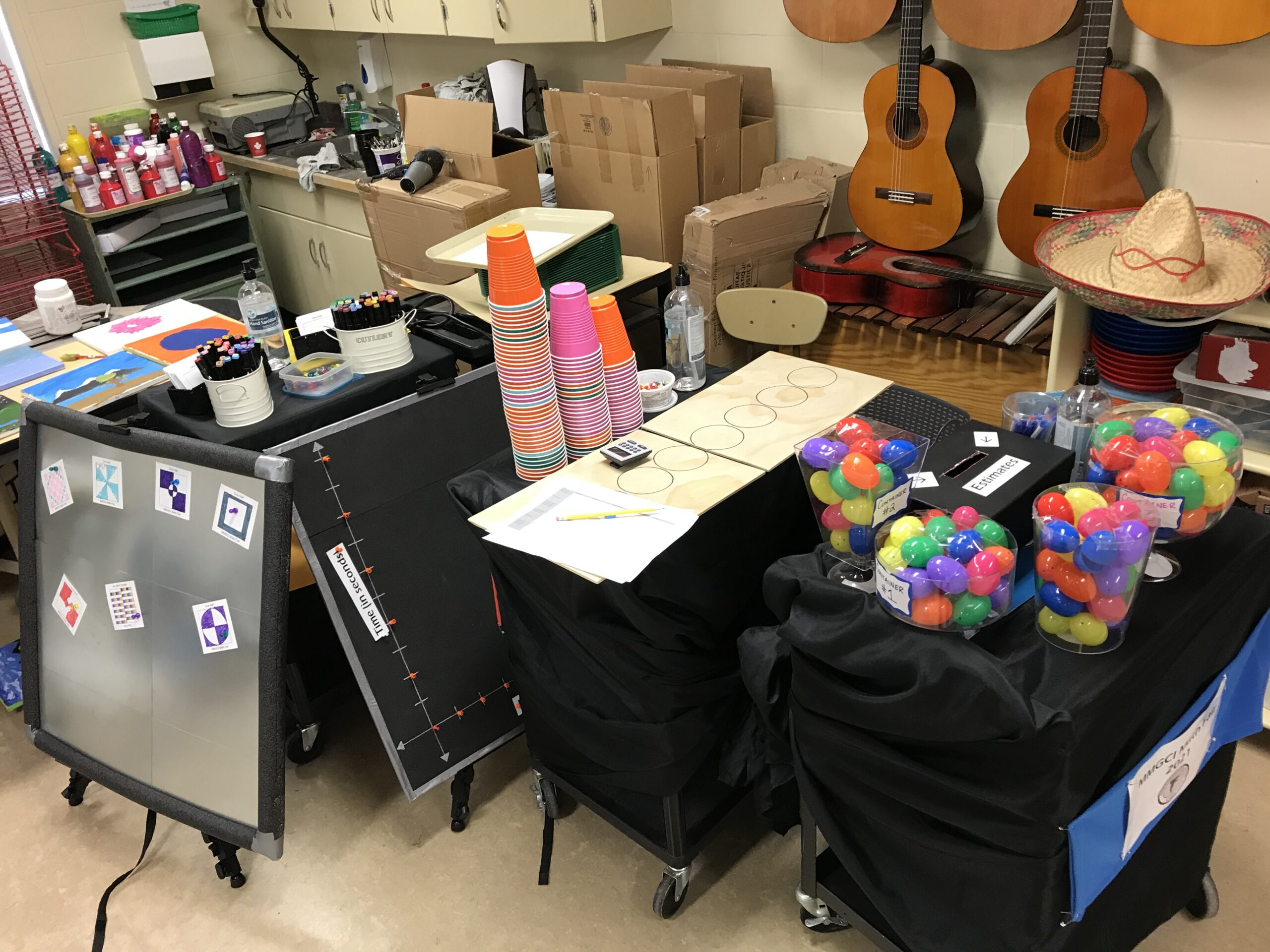In 2015, my students and I founded an annual math fair in my school division. Inspired by mathematical play, the fair grew from humble beginnings into a staple of my mathematical calendar. Like nearly everything about this school year, the fair was jeopardized by the pandemic; however, with a touch of innovation and the ongoing support from my school administration, the teams of educators in our five feeder elementary schools, our trustee, and the school community council, I managed to pull together three math invitation carts that could be disassembled, transported, and reassembled in the elementary schools.

The travelling carts assembled in the back room of an elementary school